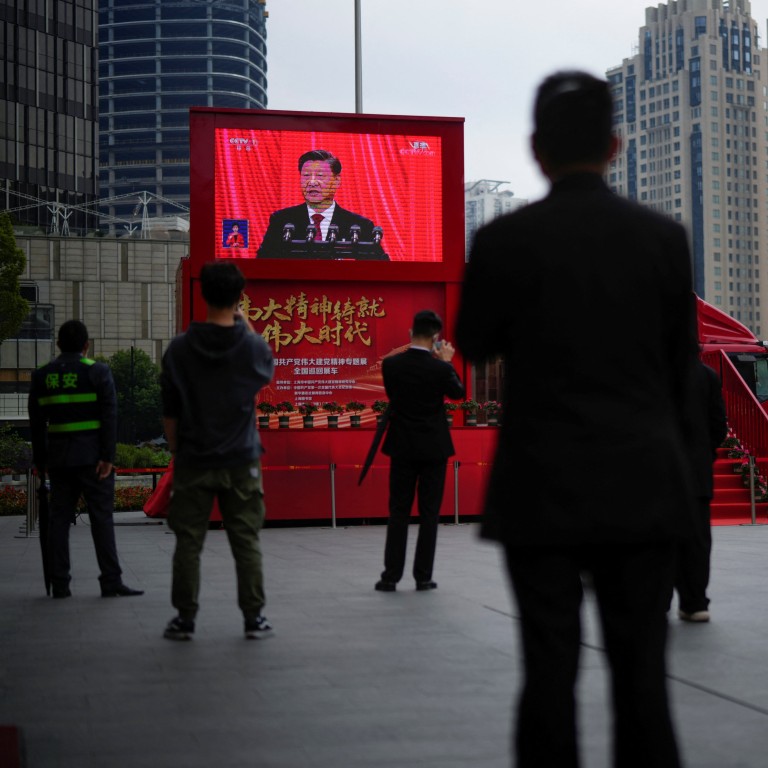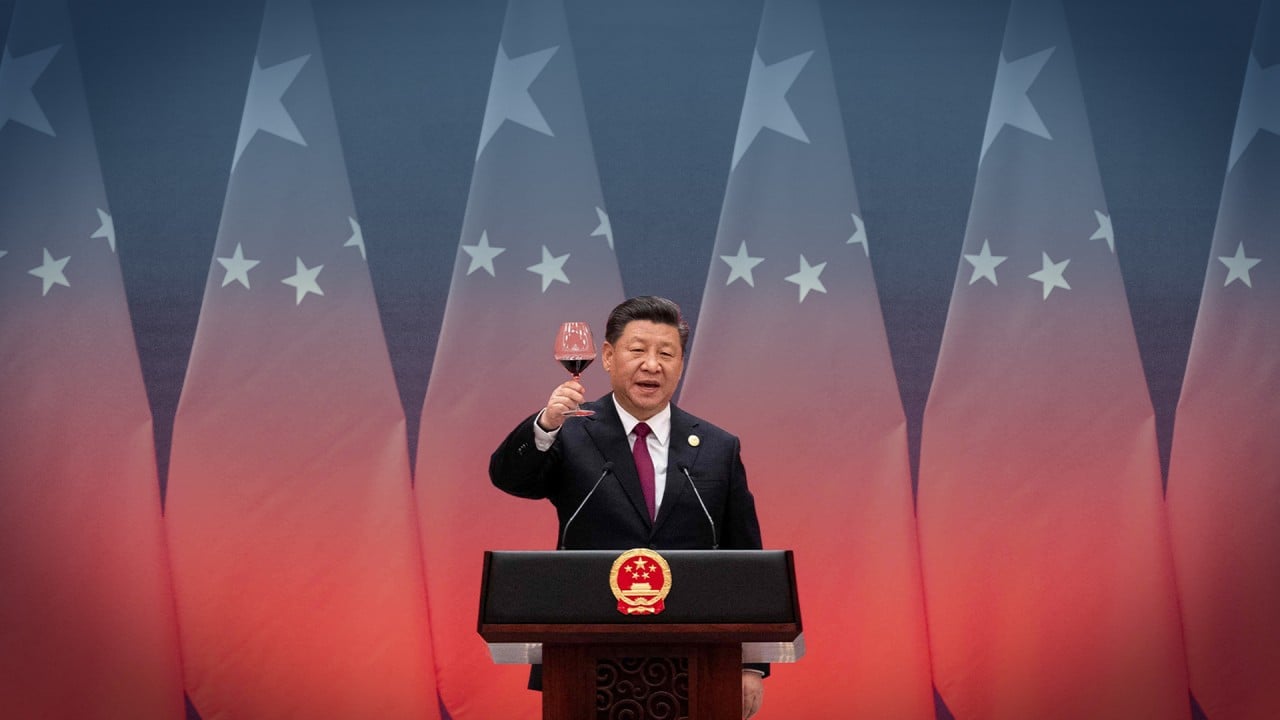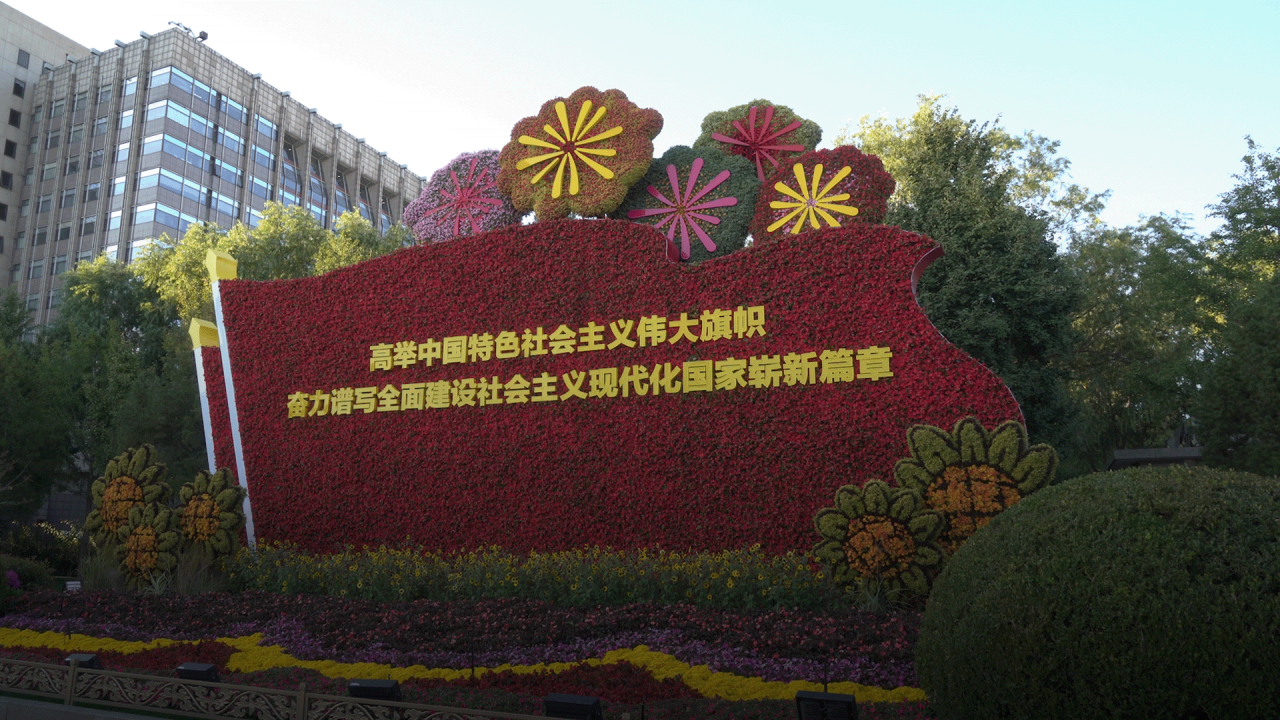
Xi Jinping’s indirect message to the US in his Communist Party congress report
- The Chinese president does not mention the United States or Ukraine but the speech does contain signals, analyst says
- For the first time, Xi uses the word ‘blackmail’ to describe a political situation
But while the message was not direct it was clear – China will not give way despite rising tension with the West.
Throughout his address, Xi spoke in general terms, offering high praise for the country’s achievements under the party’s leadership since 2017.
“The five years since the 19th national congress were extremely unusual and extraordinary,” Xi said in his work report at the Great Hall of the People.
“The party coordinated the Chinese nation … coped effectively with the severe and complex international situation and the huge risks and challenges that followed, and continuously pushed forward socialism with Chinese characteristics in a new era with a spirit of vigour.”
He added that in the face of rapid changes in the international situation, especially in the face of “external blackmail, containment, blockade and extreme pressure”, China national interests remained paramount and domestic politics was the party’s priority.
It is the first time Xi has used the word “blackmail” to describe a political situation.
China and US must get along, Communist Party says on eve of national congress
He went on to stress that China pursued an independent foreign policy of peace and resolutely opposed all forms of hegemonism, suppression politics and cold war mentality.
Xi’s defence of the UN Charter signals China’s position on the Ukraine war and its view on the Russian invasion, according to Pang Zhongying, an international politics professor at Ocean University of China.
“I think it was very meaningful [for Xi] to mention the UN Charter because Russia’s invasion of Ukraine violates the Charter of the United Nations in terms of sovereignty. And by reiterating this, China draws some lines between itself and Russia and basically says that China holds a different view on Ukraine from Russia,” Pang said.
Xi also did not directly address another elephant in the room – Beijing’s relationship with Washington.
Tensions between the two countries rose even further last week after the Biden administration introduced export controls preventing US chip companies from exporting technology and services to China – a blow for China’s tech industry, an area that is a top priority for Beijing.
Speaking in broad terms, he said China clearly opposed unilateralism, protectionism and bullying practices and engaged in “major-country diplomacy with Chinese characteristics”.
“We … promote the establishment of the community of common destiny for humanity and firmly uphold fairness and justice in international settings,” Xi said.
“We promote the building of new international relations, actively participate in the reform and construction of the global governance system and carry out comprehensive international cooperation to tackle the pandemic.”
While Xi did not mention the US in his report, he did say that education, technology and talent were the basis for the development of China as a strong country.
“Technology is the prime production force, talent is the prime resource and innovation is a prime driving force,” Xi said, again stressing the need for technological self-reliance.
The rivalry between the US and China was also reflected in Xi’s speech on China’s relations with other developing countries.
Xi said in his report that China upheld the concepts of truthfulness, sincerity, righteousness and benefit to strengthen solidarity and cooperation with developing countries and safeguard their common interests.
Pang said the US had been competing with China in relation to developing countries, with its Indo-Pacific strategy facing off against China’s Belt and Road Initiative.
He said China was facing loan issues with developing countries but Xi’s emphasis on common interests suggested Beijing was looking for solutions.
“This is China’s way of trying to figure a way out of the Chinese debt and stay in good relations with [developing countries],” Pang said.
Xie Maosong, a senior researcher with the National Strategy Institute at Tsinghua University in Beijing, said Xi’s report on the economy also indicated that China would develops its own way to confront the challenges imposed by the West.
“One thing to note is China is ‘promoting the construction of an open world economy.’ When the West tries to decouple, China shall do the opposite, building more partnerships, more trade and investment linkages with other countries,” Xie said.



